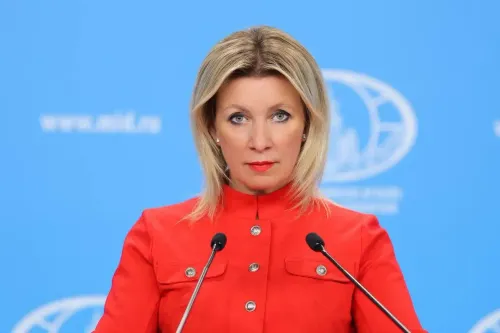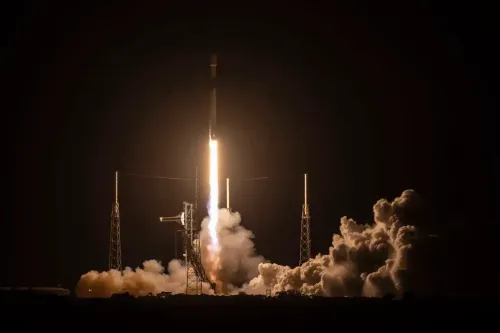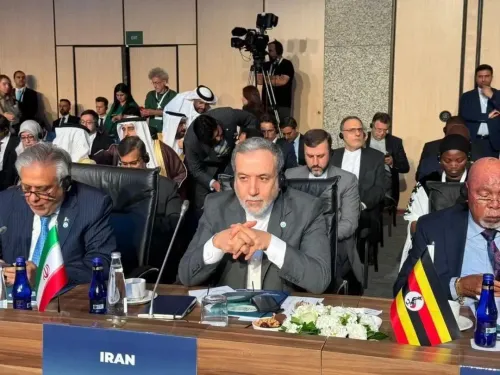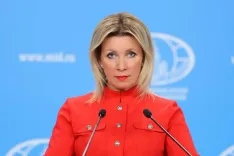Could Operation Sindoor Strengthen India's Stance Against Terrorism?
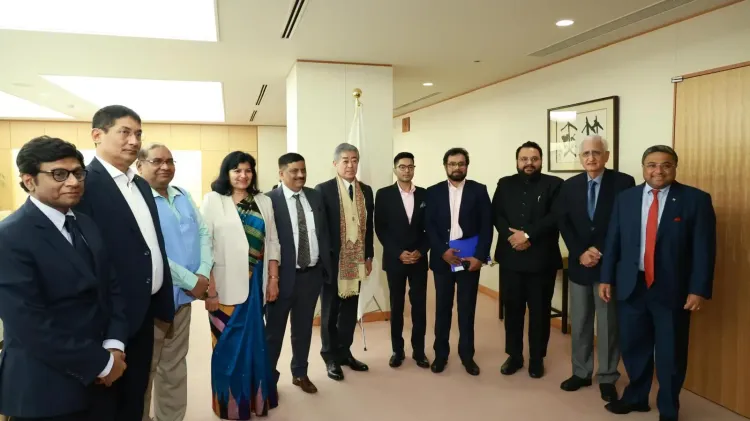
Synopsis
Key Takeaways
- Delegation highlights India's commitment to combat terrorism.
- Japan expresses solidarity with India against terrorist activities.
- Focus on Pakistan's role in supporting terrorism.
- Importance of global accountability in addressing state-sponsored terror.
- Strengthening India-Japan diplomatic ties through collaboration.
Tokyo, May 22 (NationPress) An all-party parliamentary delegation headed by Janata Dal (United) MP Sanjay Jha engaged with senior Japanese leaders in Tokyo on Thursday, reaffirming India's steadfast commitment to combat terrorism as part of the global outreach initiative known as Operation Sindoor.
This delegation comprises BJP MPs Aparajita Sarangi and Brij Lal, Trinamool Congress MP Abhishek Banerjee, CPI(M) Rajya Sabha member John Barittas, and senior Congress figure Salman Khurshid.
Their presence marks the initiation of India's significant diplomatic campaign aimed at revealing Pakistan's ongoing involvement in cross-border terrorism, particularly following the Pahalgam attack that occurred on April 22.
During their time in Tokyo, the delegation held critical discussions with Takashi Endo, Chairman of the Japanese House of Representatives Committee on National Security, where they communicated India's united and determined position against terrorism in all its forms. Endo demonstrated Japan's strong solidarity with India in its battle against terrorism, as reported by the Indian Embassy.
Additionally, the delegation met with Japanese Foreign Minister Takeshi Iwaya, who reiterated Tokyo's unwavering support and commended India's restraint amidst provocations.
Iwaya stressed the importance of bringing those responsible for terrorism to justice and expressed robust support for India's reaction to the Pahalgam incident.
"We reiterated our national resolve to act decisively against terrorism and its supporters. We are thankful for Japan's backing and for advocating justice against the perpetrators of such acts," Jha shared on X after the meeting.
He also honored the Japanese minister in the traditional Mithila style.
Later, the delegation met with former Japanese Prime Minister Yoshihide Suga, who is currently the Vice President of the ruling LDP and the Chairman of the Japan-India Association. Suga reaffirmed Japan's dedication to assist India in its fight against terrorism.
The delegation additionally engaged with notable Japanese think tanks, providing insights into India's zero-tolerance policy and detailing the support Pakistan extends to terrorist organizations like Lashkar-e-Taiba (LeT) and Jaish-e-Mohammad (JeM).
The discussion elicited strong endorsements for India's position on regional security and the fight against state-sponsored terrorism.
"This dialogue fortifies global partnerships anchored in peace, security, and shared democratic values," Jha expressed on X.
Earlier that day, the Indian lawmakers were welcomed by Ambassador Sibi George upon their arrival in Tokyo and received a briefing on the strategic roadmap for engagements with Japan's political, diplomatic, and civil society sectors.
This visit is part of a global campaign led by the MEA, involving seven high-level delegations consisting of 59 MPs, former ministers, diplomats, and political leaders, visiting 33 countries from May 21 to June 5.
While Jha's group focuses on East and Southeast Asia, other delegations led by MP Shrikant Shinde and DMK leader Kanimozhi are exploring the Middle East, Africa, and Europe, with the goal of building a global consensus and diplomatically isolating Pakistan.
This campaign represents one of India's most extensive and coordinated diplomatic efforts against terrorism, advocating for global accountability concerning state-backed terrorist networks.

